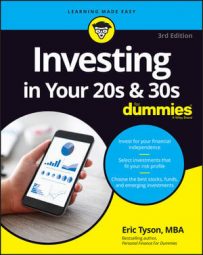When you invest in certain securities — such as stocks and bonds and exchange-traded funds (ETFs) — and when you want to hold mutual funds from different companies in a single account, you need brokerage services. Brokers execute your trades to buy or sell stocks, bonds, and other securities and enable you to centralize your holdings of mutual funds, ETFs, and other investments. Your broker can also assist you with other services that may interest you.
Deciding which investment company is best for you depends on your needs and wants. In addition to fees, consider how important having a local branch office is to you. If you want to invest in mutual funds, you’ll want to choose a firm that offers access to good funds, including money market funds in which you can deposit money awaiting investment or proceeds from a sale.
For the lowest trading commissions, you generally must place your trades online. But you should be careful. A low brokerage fee of, say, $7 or $10 per trade doesn’t really save you money if you trade a lot and rack up significant total commissions. Also, you pay more in taxes when you trade more frequently and realize shorter-term (one year or less) profits.
Trading online is an easy way to act impulsively and emotionally when making important investment decisions. If you’re prone to such actions, or if you find yourself tracking and trading investments too closely, stay away from this form of trading, and use the Internet only to check account information and gather factual information. Increasing numbers of brokers offer account information and trading capabilities via apps, which, of course, can also promote addictive investment behaviors.

